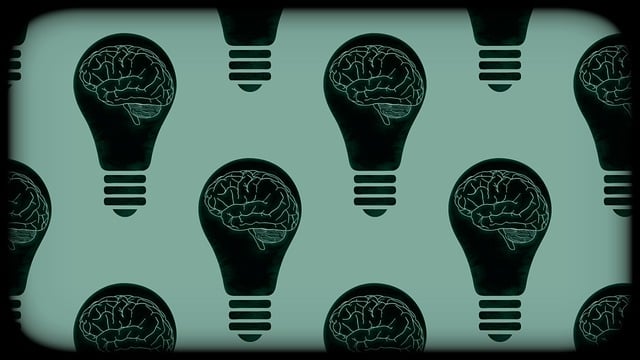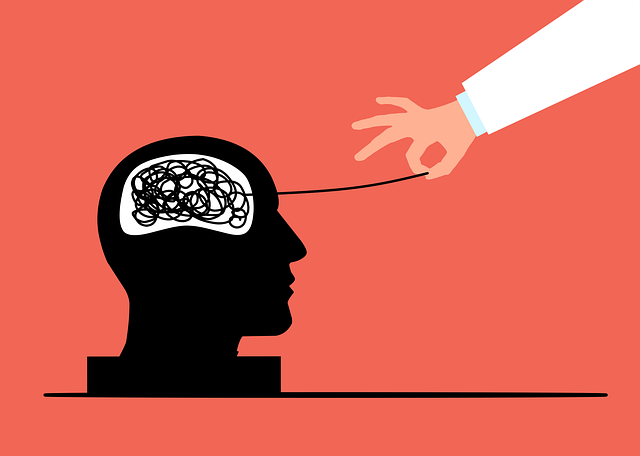Emotion regulation is a key skill for adolescents facing hormonal changes, peer pressure, and academic demands. Therapy for adolescent teens, incorporating techniques like Cognitive Behavioral Therapy (CBT), teaches them to manage stress, anxiety, and anger constructively. Parenting skills, including calmness, active listening, and open communication, create a supportive environment fostering emotional intelligence. Community outreach programs, such as mindfulness workshops and empathy-building strategies, offer additional resources for teens and families. Integrating mental wellness journaling exercises and open dialogue about emotions strengthens familial connections and enhances coping mechanisms. These collaborative efforts contribute to the development of robust emotional regulation skills, promoting better mental health outcomes in adolescents and creating a more resilient society.
Emotion regulation techniques are vital tools for adolescent development, especially in navigating the tumultuous teen years. This article delves into the transformative power of teaching teens healthy emotional responses. We explore the impact of parenting skills on emotional maturity and present effective therapy approaches tailored for adolescents. From identifying emotions to building resilience, these strategies empower teens to manage their feelings effectively. Understanding and implementing these techniques can foster healthier, more resilient young adults, highlighting the critical role of emotion regulation in their overall well-being.
- Understanding Emotion Regulation and Its Impact on Teens
- The Role of Parenting Skills in Teen Emotional Development
- Effective Therapy Approaches for Teaching Emotion Regulation to Adolescents
- Strategies for Helping Teens Identify and Express Emotions Healthily
- Building Resilience: Long-term Benefits of Emotion Regulation Techniques
Understanding Emotion Regulation and Its Impact on Teens

Emotion regulation is a vital skill for adolescent teens navigating their rapidly changing world. It involves understanding and managing feelings in healthy ways, which has a profound impact on their overall well-being and development. Many teens struggle with intense emotions due to hormonal changes, peer pressure, and increased academic demands. Learning effective emotion regulation techniques through therapy for adolescent teens empowers them to cope with stress, anxiety, and anger constructively.
Parenting skills play a crucial role in teaching these strategies. By modeling calmness, active listening, and open communication, parents can create a supportive environment that encourages emotional intelligence. Community outreach programs, such as mindfulness meditation workshops and empathy-building strategies, offer additional resources for both teens and their families. These initiatives enhance the understanding of emotion regulation and provide practical tools to foster healthy development in adolescent teens.
The Role of Parenting Skills in Teen Emotional Development

Parenting skills play a pivotal role in adolescent emotional development. Effective parenting fosters a safe and supportive environment that encourages teens to express their emotions healthily. Through open communication, parents can help teenagers identify and understand their feelings, teaching them valuable emotional regulation techniques. This process equips adolescents with the tools to navigate challenging situations and promotes mental wellness from an early age.
Community outreach programs targeting teen parents can significantly enhance these skills. Implementing evidence-based strategies taught through therapy for adolescent teens, combined with community support, creates a holistic approach to emotional well-being promotion techniques. By empowering parents, these initiatives indirectly contribute to the overall health of future generations, ensuring a more resilient and emotionally intelligent society.
Effective Therapy Approaches for Teaching Emotion Regulation to Adolescents

Teaching emotion regulation to adolescents is a critical component of their overall development and well-being. Effective therapy approaches for this age group often focus on empowering teens with practical skills to manage their emotions healthily. Cognitive Behavioral Therapy (CBT) is a widely recognized method, providing young individuals with tools to identify and challenge negative thought patterns and behaviors associated with strong emotions. By teaching adolescents to recognize triggers and develop healthier coping mechanisms, CBT equips them to navigate challenging situations more effectively.
One complementary strategy is integrating mental wellness journaling exercises into therapy sessions. This practice encourages teens to reflect on their emotional experiences, track their moods, and identify patterns. Journaling fosters self-awareness and serves as a safe space for adolescents to express their feelings. Additionally, communication strategies play a pivotal role in emotion regulation. Encouraging open dialogue between parents and teens about emotions can strengthen familial connections and enhance the latter’s ability to communicate their needs effectively. Together with journaling and CBT techniques, these collaborative efforts contribute to the development of robust coping skills in adolescent teens, promoting better mental wellness.
Strategies for Helping Teens Identify and Express Emotions Healthily

Teaching teens to identify and express emotions healthily is a crucial aspect of their development and can significantly impact their overall well-being. Parents and caregivers play a pivotal role in guiding adolescents through this process by fostering an environment where open communication is encouraged. One effective strategy is to engage teens in conversations about their feelings, helping them label and understand different emotions. This can be facilitated through simple activities like discussing daily events and how they made the individual feel or using social skills training tools to practice emotional recognition.
Additionally, encouraging self-awareness and mindfulness practices can empower teenagers to manage their emotions effectively. Incorporating techniques from mental wellness podcast series production, such as deep breathing exercises or journaling, allows teens to process and release their feelings in a constructive manner. By teaching these skills, parents enhance their children’s ability to navigate emotional challenges, fostering better mental health outcomes and strengthening the parent-teen relationship through improved communication.
Building Resilience: Long-term Benefits of Emotion Regulation Techniques

Emotion regulation techniques offer a powerful tool for building resilience in adolescent teens, a skill that can have lasting benefits into adulthood. By teaching them to identify and manage their emotions effectively, parents and mental health professionals alike can empower teens to navigate life’s challenges with greater ease. This proactive approach to mental health fosters self-awareness exercises, encouraging young individuals to understand their emotional responses and triggers, thereby enhancing their ability to cope with stress and prevent potential crises.
Long-term benefits of these techniques extend beyond improved emotional intelligence. Effective emotion regulation can lead to better academic performance, stronger interpersonal relationships, and enhanced overall well-being. Moreover, for at-risk teens, learning these skills can serve as a protective factor, mitigating the impact of adverse experiences and promoting positive mental health outcomes. This is particularly crucial in parenting skills development, where equipping parents with strategies to support their teen’s emotional growth can create a more harmonious family environment.
Emotion regulation techniques are a powerful tool in fostering healthy adolescent development. By understanding the impact of emotions on teens and equipping parents with effective parenting skills, we can create a supportive environment that promotes emotional well-being. Integrating therapy approaches tailored for adolescents allows us to teach them strategies to navigate and express their feelings constructively. These skills not only enhance their current mental health but also build resilience, benefiting them throughout their lives. Empowering teens to manage their emotions is a key aspect of holistic development, ensuring they can thrive in an increasingly complex world.











